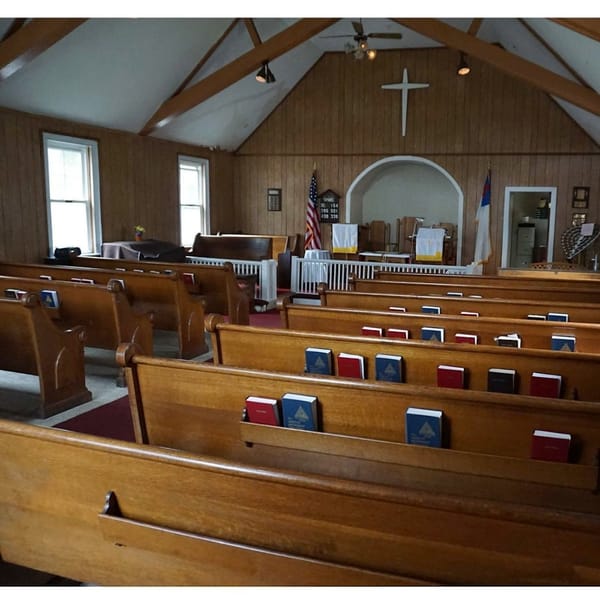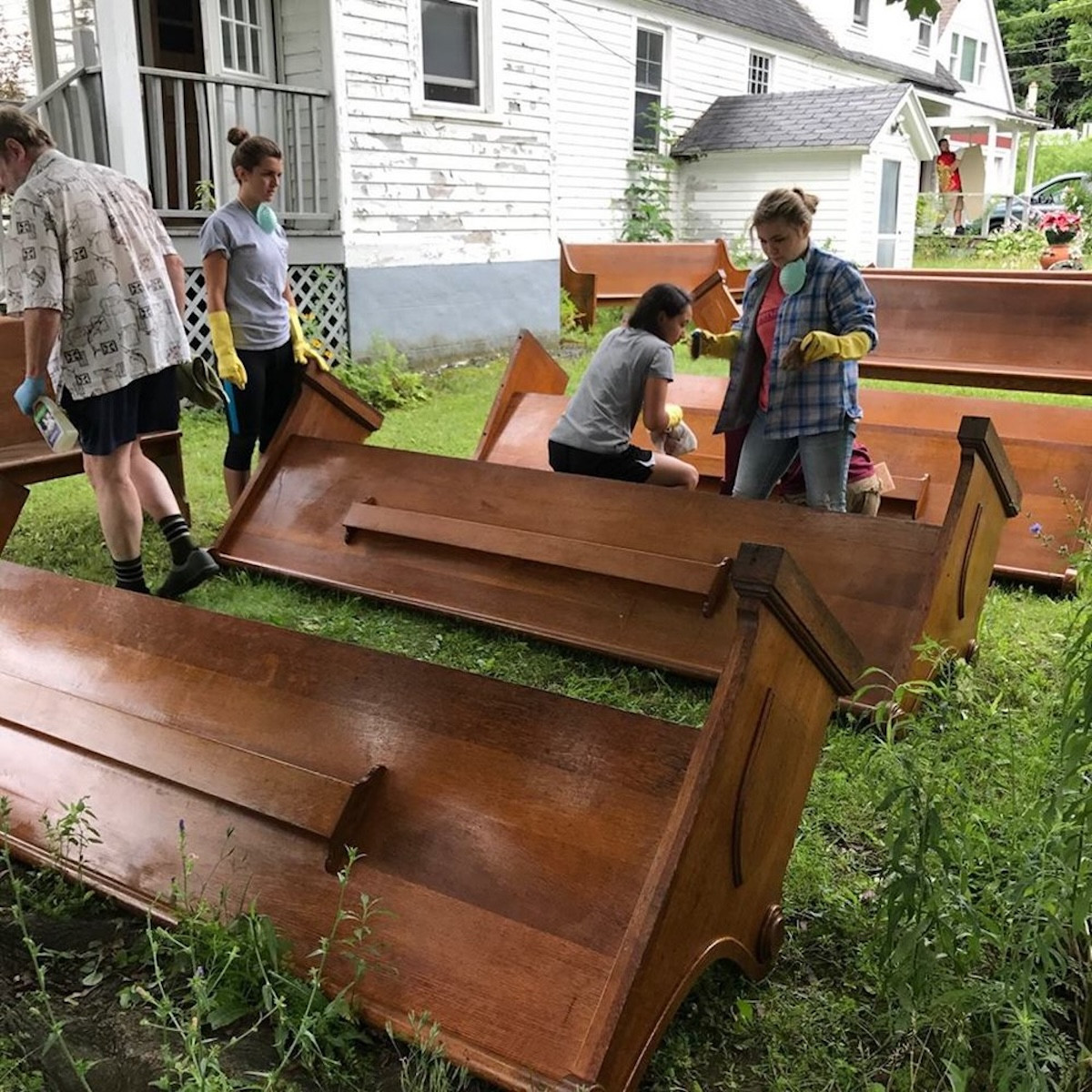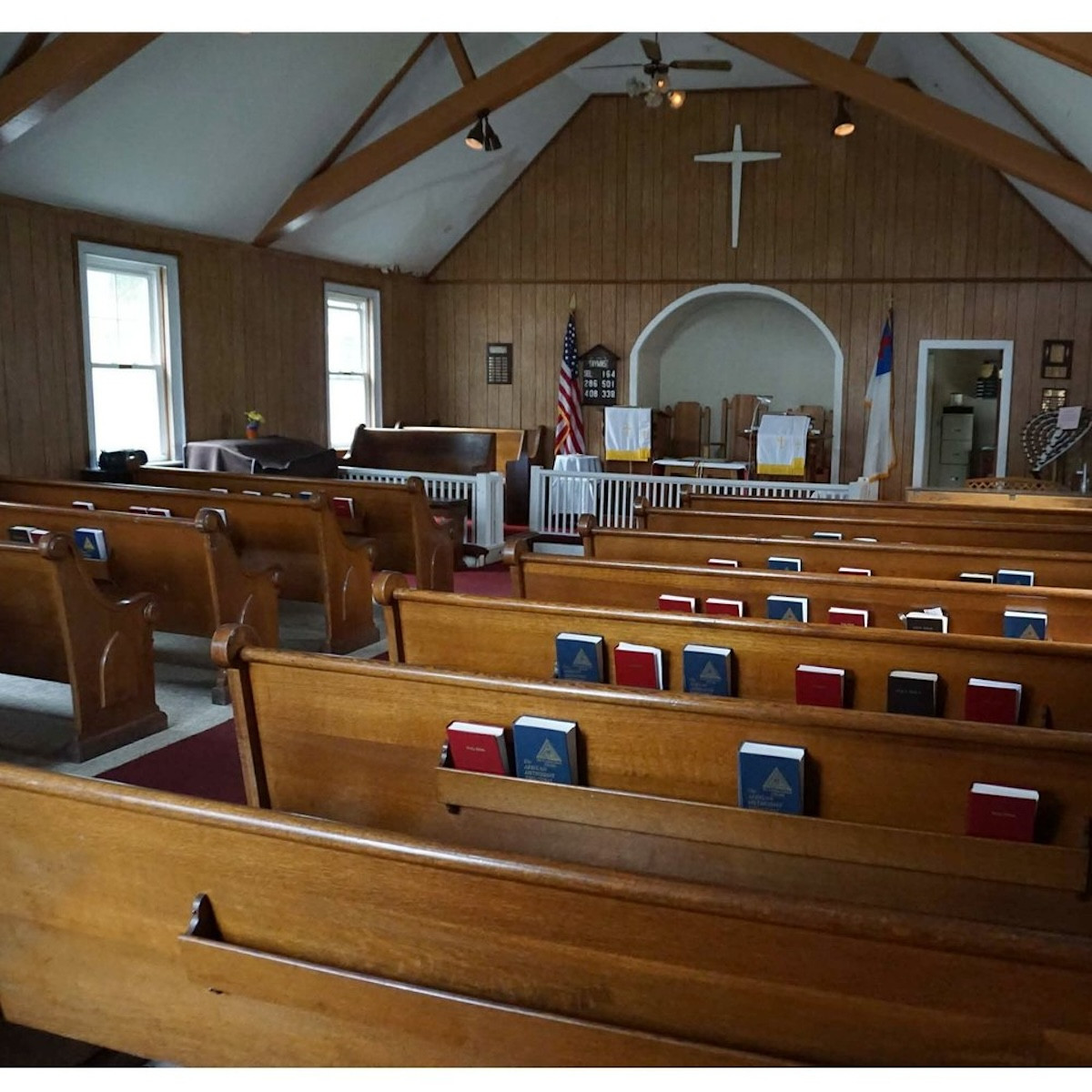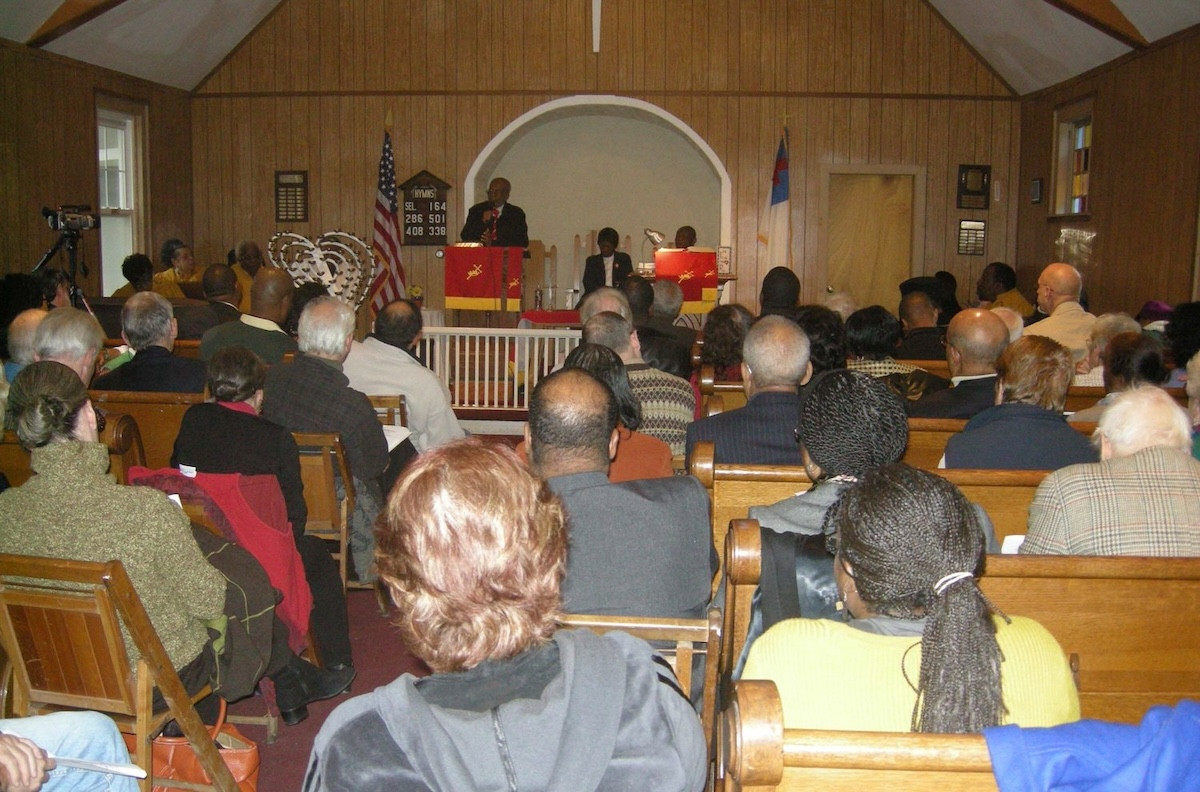Historic Church Pews at Future Du Bois Center Seek New Homes
These pews once held Du Bois and were the site of culturally defining moments for the Berkshires's Black community.

These pews once held Du Bois and were the site of culturally defining moments for the Berkshires's Black community.

The piews, as they were when the church closed
As the Clinton A.M.E. Zion Church undergoes transformation into the new Du Bois Freedom Center at 9 Elm Court in Great Barrington, eight historic wooden pews have become available to community members and organizations committed to preserving these noteworthy pieces of the building's legacy. These pews, once mounted against the interior walls of the late‑19th‑century chapel, will be given to new caretakers who will honor their provenance.
As Great Barrington embraces Du Bois’s legacy in increasingly public ways, unveiling a stature of the civil rights movement pioneer earlier this month, the pews are artifacts not just of his past but of all the African American community members who helped craft regional identity.

Though not original to the church’s 1880s construction, research suggests the pews date from a later renovation. They were intact when the church was purchased in 2016 to save it for historical posterity. Each pew includes an informational plaque detailing its history and context within the larger story of the building and its community significance.
The Clinton A.M.E. Zion Church, built in 1887, was the first African American church in Berkshire County and served as a spiritual, cultural, and political center for local Black residents for more than a century. Du Bois attended services there, and the building hosted events including gospel choir performances, NAACP gatherings, and civic meetings. In 2014, after a decline in congregation size, the church closed; community members mobilized in 2016 to acquire and save the structure. In 2017, the restoration effort ushered in the nonprofit now advancing its rebirth as the Du Bois Freedom Center.
Eight pews will be re-homed, with one set aside to remain permanently in the new exhibition space. The pews are stored on a second‑floor barn loft in Great Barrington; visitors are welcome to view and select a piece, with the responsibility of transport and handling falling to new owners. The center requests a modest donation to support ongoing restoration and programming efforts.

volunteers clean and restore the historic pews.
Once reopened, the Du Bois Freedom Center will offer interpretive exhibits, oral history installations, and community programming. It aims to reclaim the church’s historical role as a civic gathering space while charting a new course as a museum and hub for social justice and cultural study.
The center intends to engage and deepen relationships between the general public and contemporary scholars, writers, and artists of color. This multifaceted mission emerged out of a collaboration of several foundational partnerships: the University of Massachusetts Amherst, home of the W. E. B. Du Bois Papers and Du Bois Fellows’ Program, and steward of the W. E. B. Du Bois Boyhood Homesite (a national historic landmark in Great Barrington); Housatonic Heritage and the Upper Housatonic Valley African American Heritage Trail; a planned Du Bois National Historic Site; Tufts University’s African American Trail Project; and Pulitzer Prize-winning Du Bois biographer Dr. David Levering Lewis.


